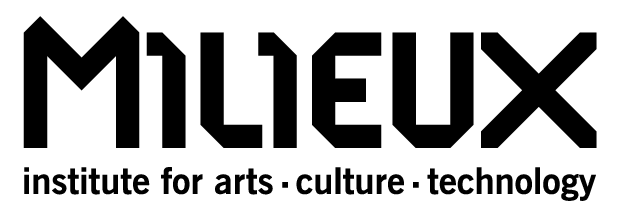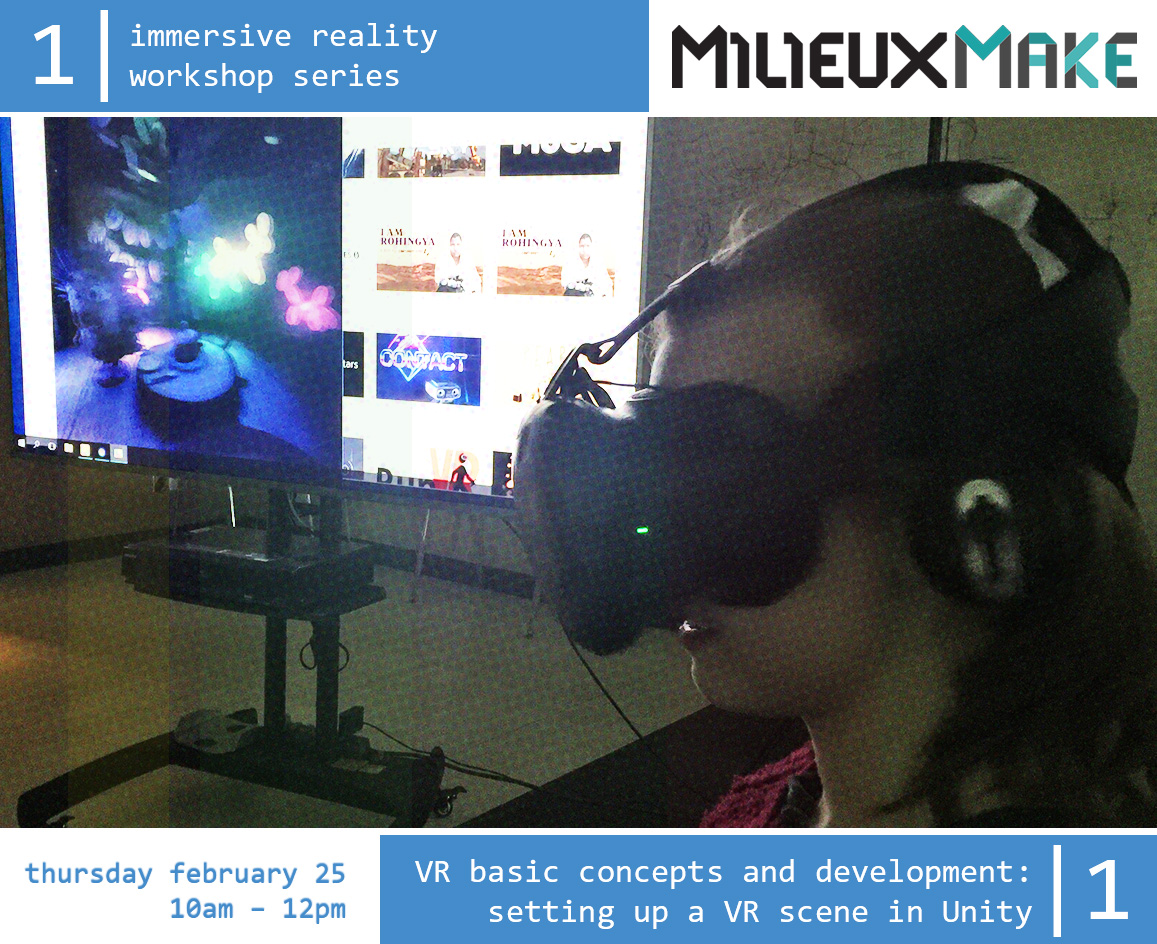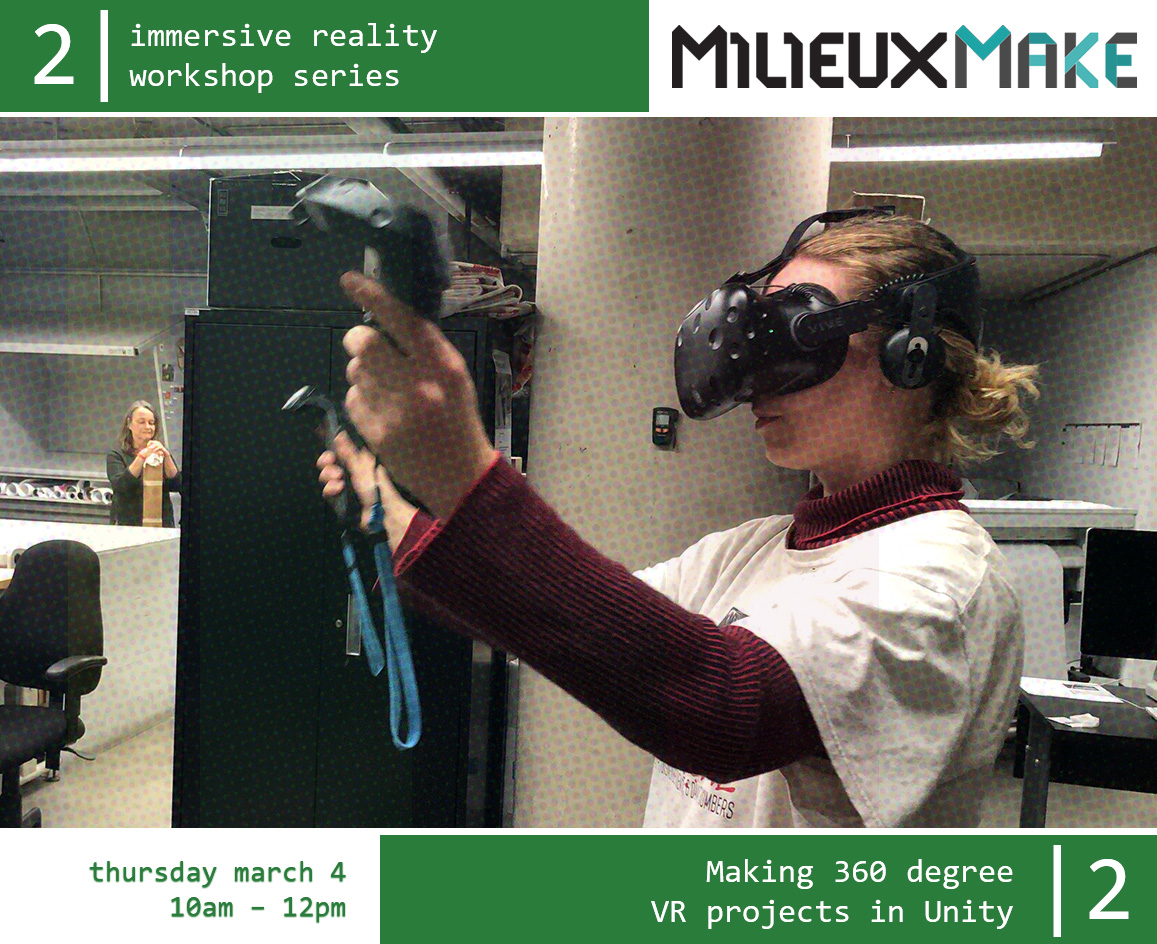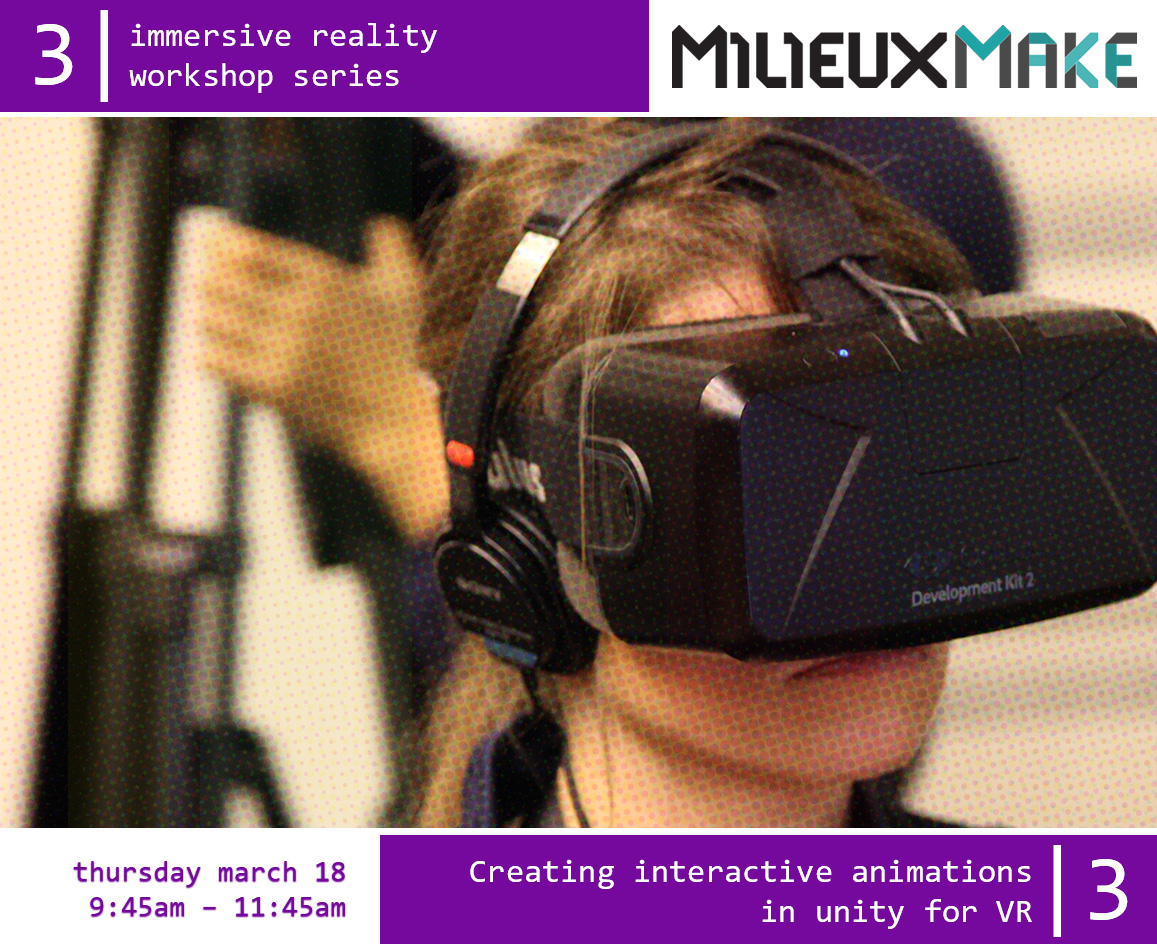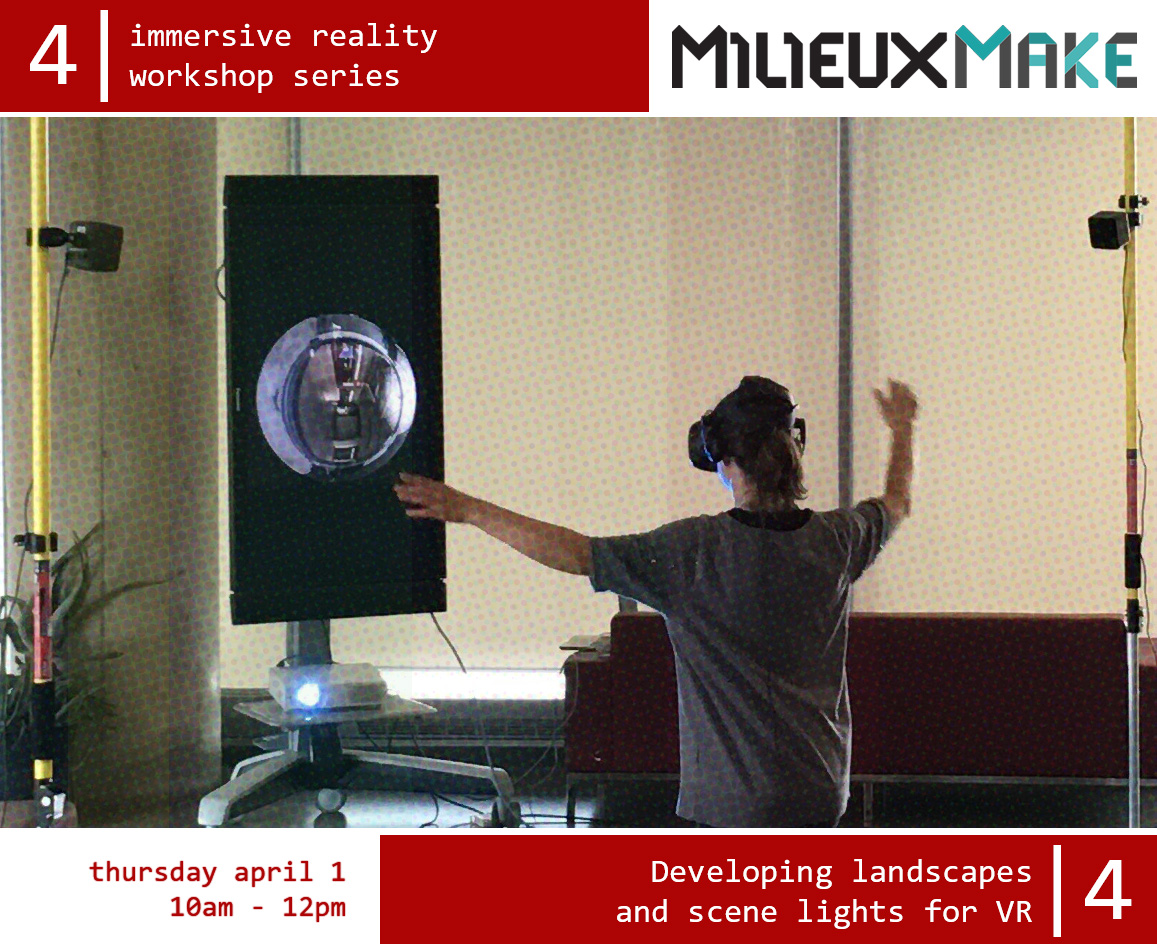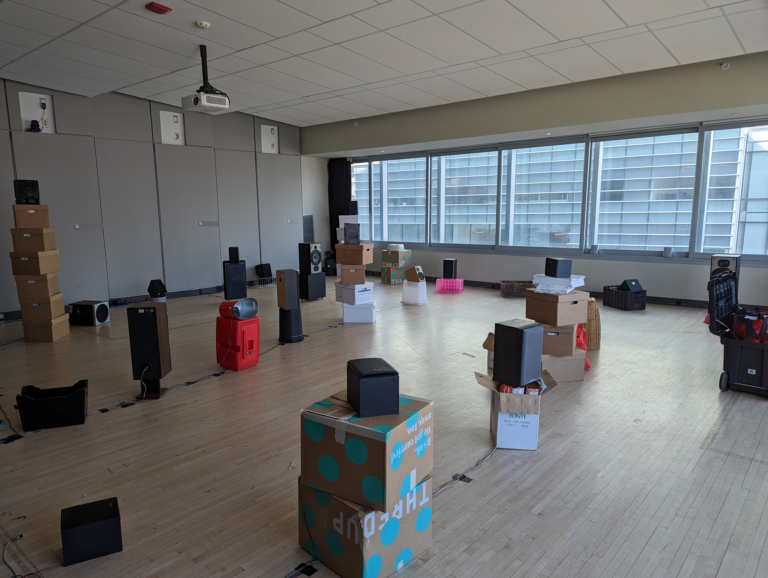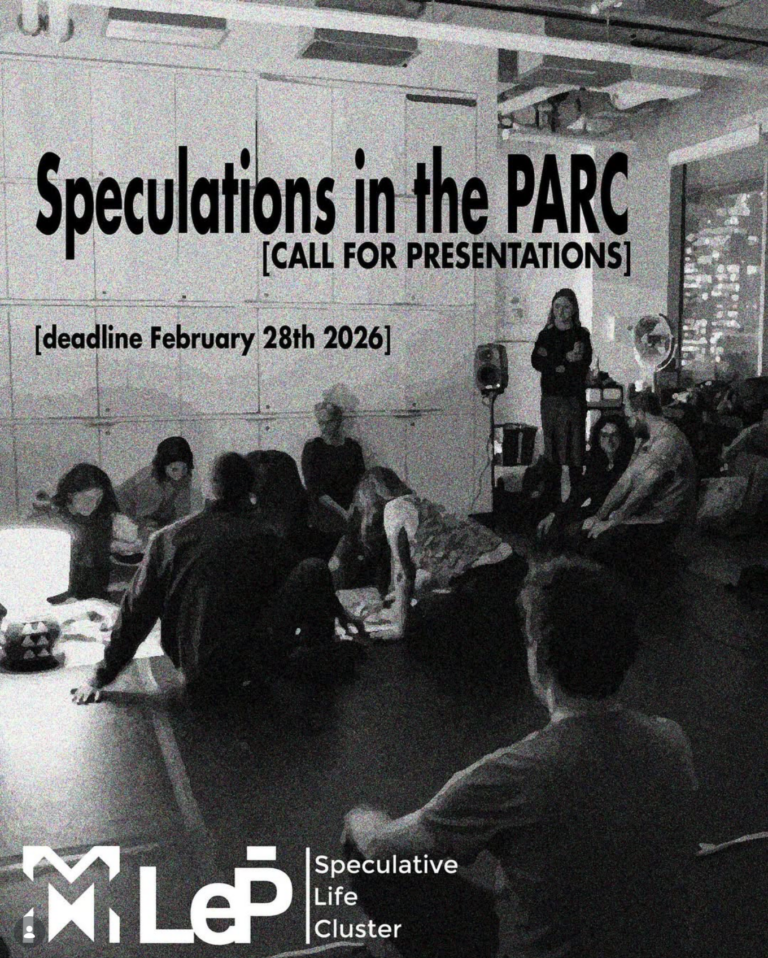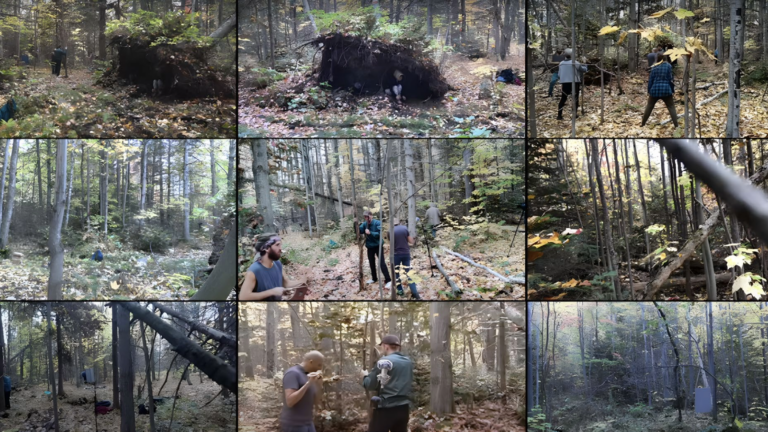This month, Milieux kicked off the 2021 season of its workshop series MilieuxMake.
The MilieuxMake workshops, largely interdisciplinary and open to members of all Milieux’s research clusters, play a central role in the Institute’s mission. They are not, in other words, merely extra-curricular: rather, these workshops provide students with both new skills to further their critical and artistic practices, and the space to foster collaboration with peers from other departments and disciplines.
This year, things will look a little different: the COVID-19 pandemic has inaugurated a world of online gathering, and most of Milieux’s activities have, accordingly, shifted into virtual space. An online environment poses some obvious challenges to the hands-on, collaborative nature of some workshops. But for many Milieux members interested in the critical study and creative application of emerging technologies, online tools and spaces are also rife with an exciting potential.
Many of this year’s workshops focus on digital tools: this season includes, for example introductions to tools like VR or the 3D modelling software Blender. Other workshops, like an introduction to fermentation, are more hands-on, focused on attending to the physical properties and relational qualities of material media. There are also workshops that build community and shared practice through: last term, Education Makers hosted weekly coding jams, and this term they are holding drop-in stitch circles that explore the intersections between textiles and tech. What unites these varied events is their investment in the creative possibilities of research-creation and the critical importance of cross-disciplinary learning.
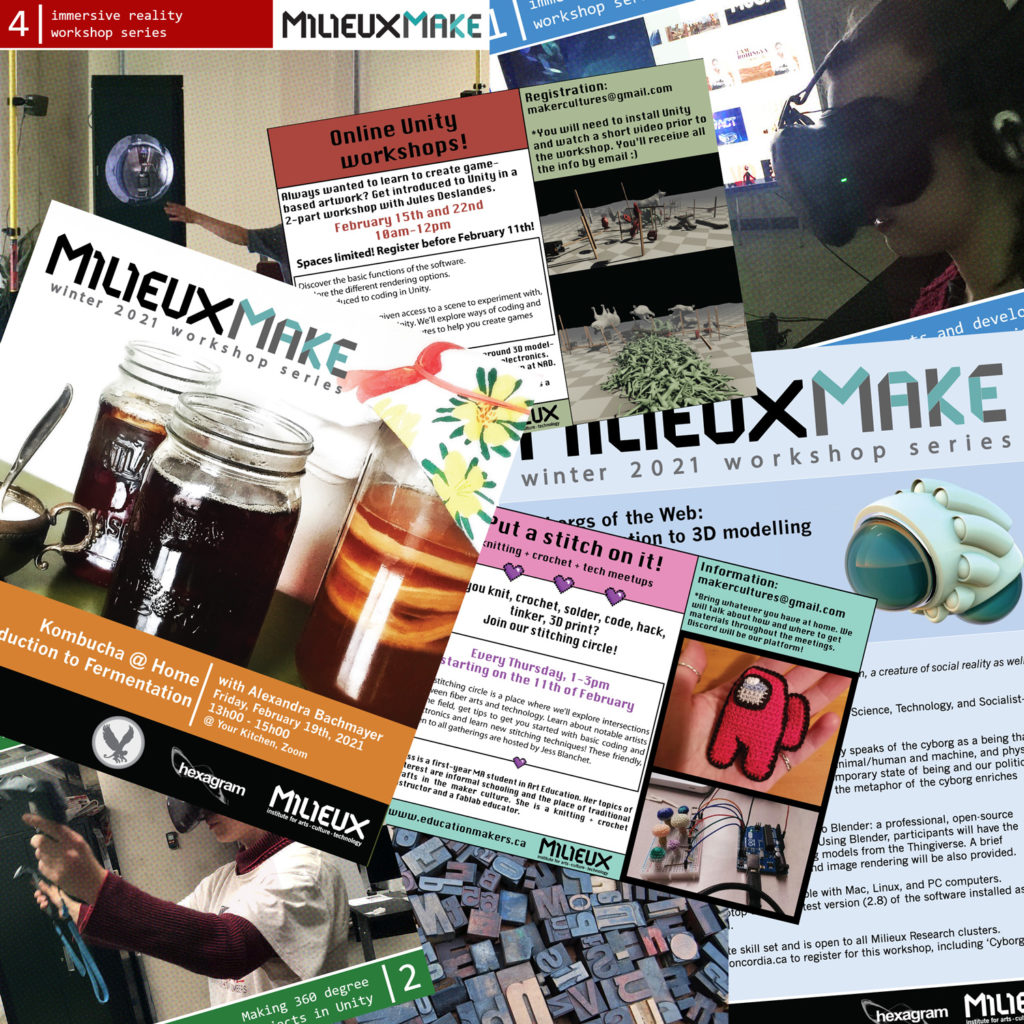
Upcoming Workshops
@ Milieux
Thursdays, 1pm – 3pm
Put a stitch on it! Knitting + crochet + tech meetups
-MilieuxMake-
Thursday, February 25th, 10am – Noon
VR Workshop: Setting up a scene in Unity
-Milieux Make-
Thursday, March 4th, 10am – Noon
VR Workshop: Making 360° projects in Unity
-Milieux Make-
Monday, March 8th, 1pm – 4:30pm
The Merit of Making Workshop
-Textiles & Materiality Research Cluster-
Thursday, March 18th, 9:45am – 11:45am
VR Workshop: Interactive Animations in Unity
-Milieux Make-
Anna Eyler, coordinator of the Textiles and Materiality Research Cluster and facilitator of the recent Blender workshop, knows first-hand the effect even an introductory workshop can have. She remembers learning Machinima, the art of cinematic production using video games, in a workshop with artist and Initiative for Indigenous Futures coordinator Skawennati during her first year in Montreal. For Eyler, whose practice engages with questions of materiality, learning a skill like Machinima transformed how she thought about the limits of her work as an artist; today, her practice increasingly explores the materiality of the digital world.
“I never really thought, without having a programming background, that those sorts of spaces would be open to me as a creator,” she says. “So just taking that workshop blew my mind.”
A software like Blender can be for anyone, she says. Some artists might dive head-first into the world, creating art using the tool itself. Others might use Blender for more practical purposes: it can be a great way for artists to mock up how installation might look, she says, or develop graphics for applications.
Marco Luna, Milieux’s VR technician and presenter of a series of upcoming VR workshops, speaks similarly about his work as a facilitator. For Luna, whose background is in filmmaking, learning about VR opens new possibilities for both making and presenting creative work. “If you are an artist with an idea, I’ll show you how to translate those into a 3D environment VR experience,” he says.
As he has mentored students in VR, Luna has noticed two common limitations: students can turn away from VR, he says, if they don’t have a background in coding or high-tech gear to work with. As a result, he designs his workshops to meet students where they’re at: no headset or previous coding experience are required.
“For me, VR is not a genre,” he says. “VR is a canvas—a canvas that can hold different types of art. A head set is just a reproduction. I’m not going to show you how to make paper. What I’m going to show you is what you can do with that paper.”
This feeling of potential also excites Alexandra Bachmayer, technician in the Speculative Life Biolab and host of an upcoming workshop on fermentation. Bachmayer says she expects her workshop, which will introduce the basics of at-home kombucha production, to be popular with people who enjoy the fermented drink. But she also hopes to highlight how fermentation can be thought of outside of the logic of consumption—how thinking of it as a relational process unlocks further creative opportunities in the medium.
“There’s also this relationship of care that’s involved” in fermentation, she says. “It’s an intimate, inter-species relationship—and that can be enough.”
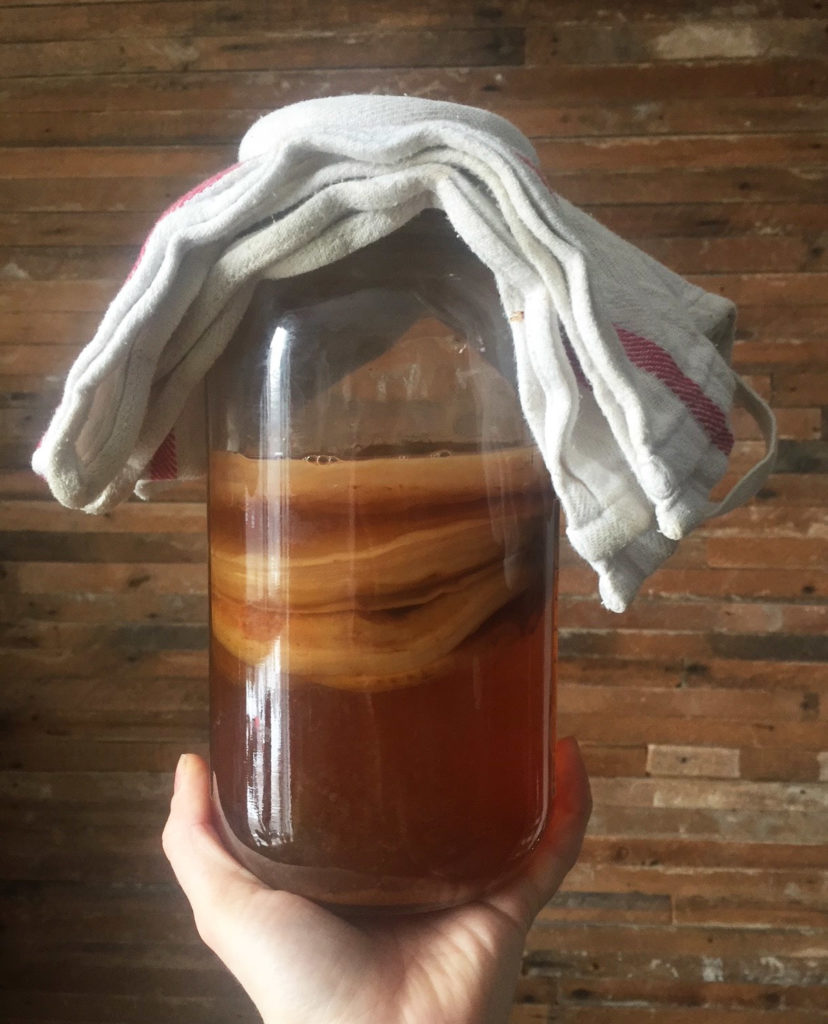
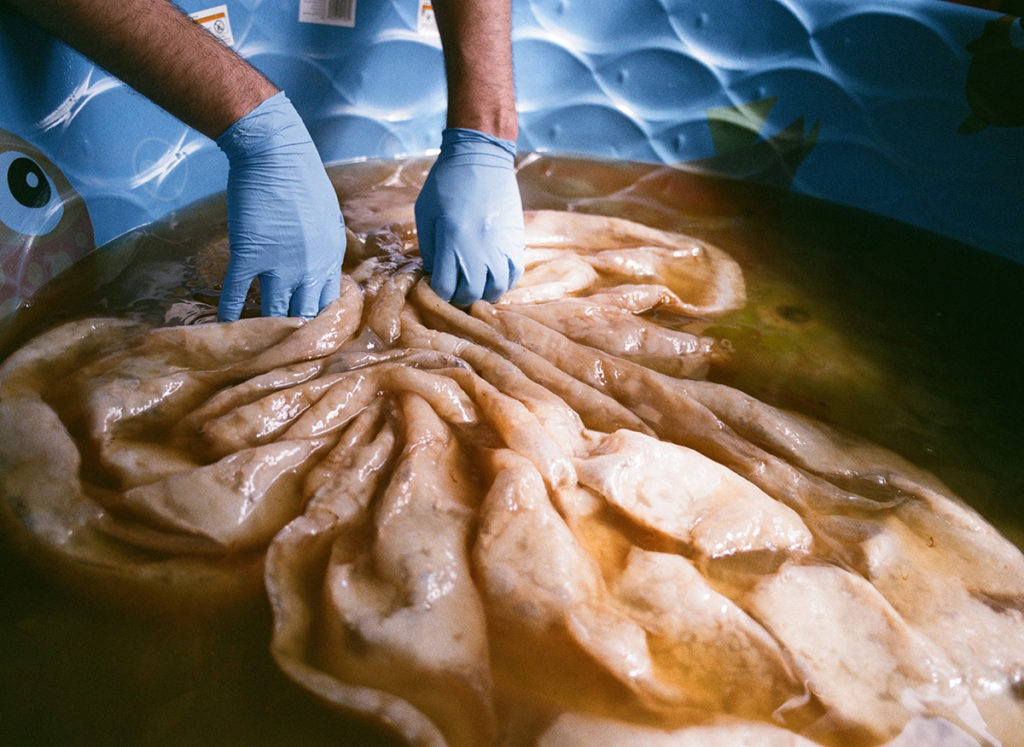
Bachmayer says the Biolab draws interest from both artists and scientists (her own background, in biodiversity studies and computation arts, is testament to this). She mentions one artist whose experience led them to use biomaterials to produce set design for theatre—an unlikely combination of material and context made possible through openness and collaboration.
“For me, VR is not a genre. VR is a canvas—a canvas that can hold different types of art. A head set is just a reproduction. I’m not going to show you how to make paper. What I’m going to show you is what you can do with that paper”
– Marco Luna, VR Technician, Milieux Institute
What could learning about biomaterials teach you about your relations, both human and otherwise? How might learning 3D modelling or VR expand how you think about or present your artistic practice? And what sorts of collaborative opportunities lie in these experiences?
There’s only one way to find out.
More information about upcoming MilieuxMake workshops, cluster workshops and other cluster events, is available on the Milieux website.
